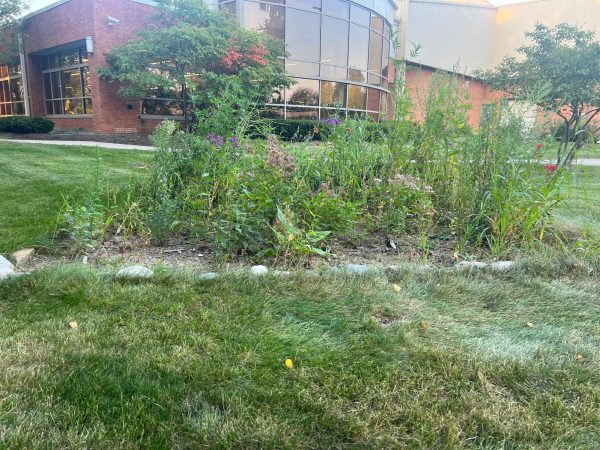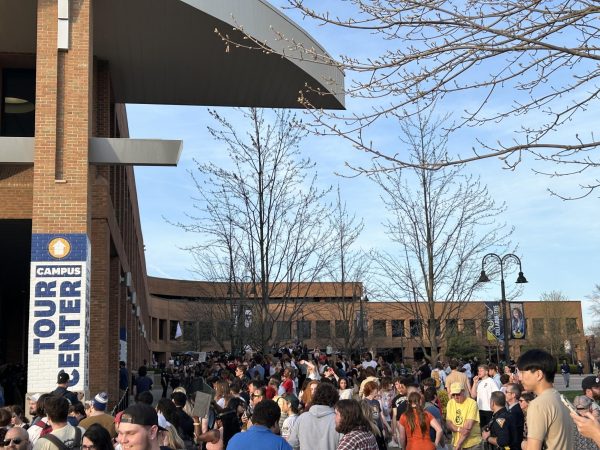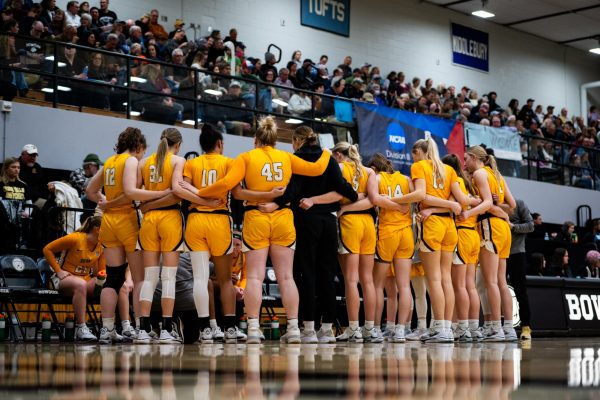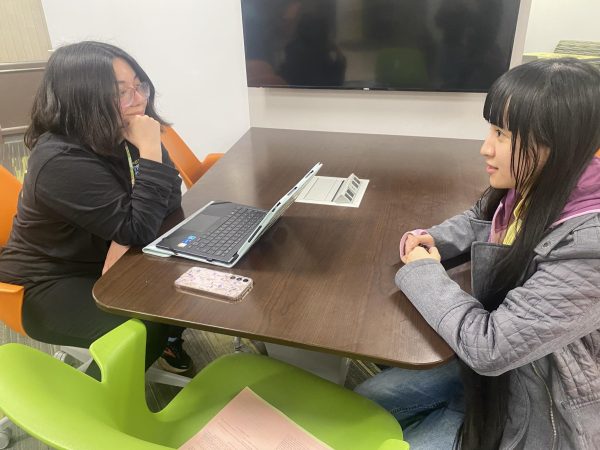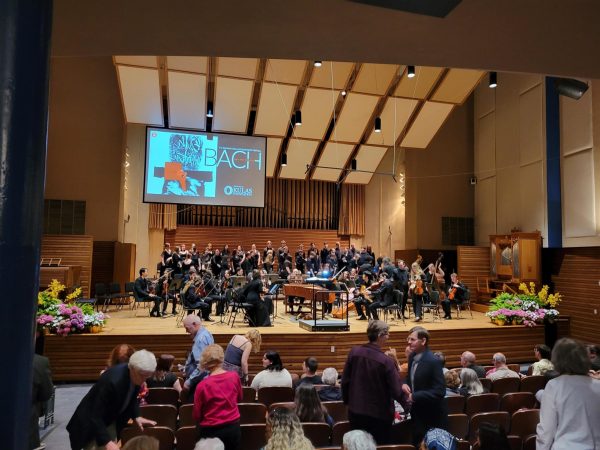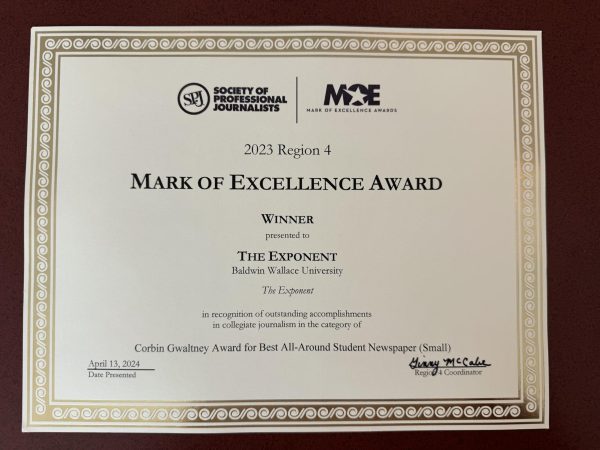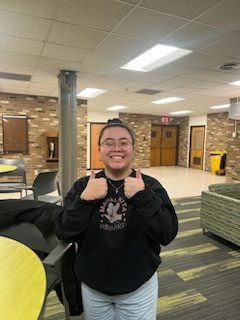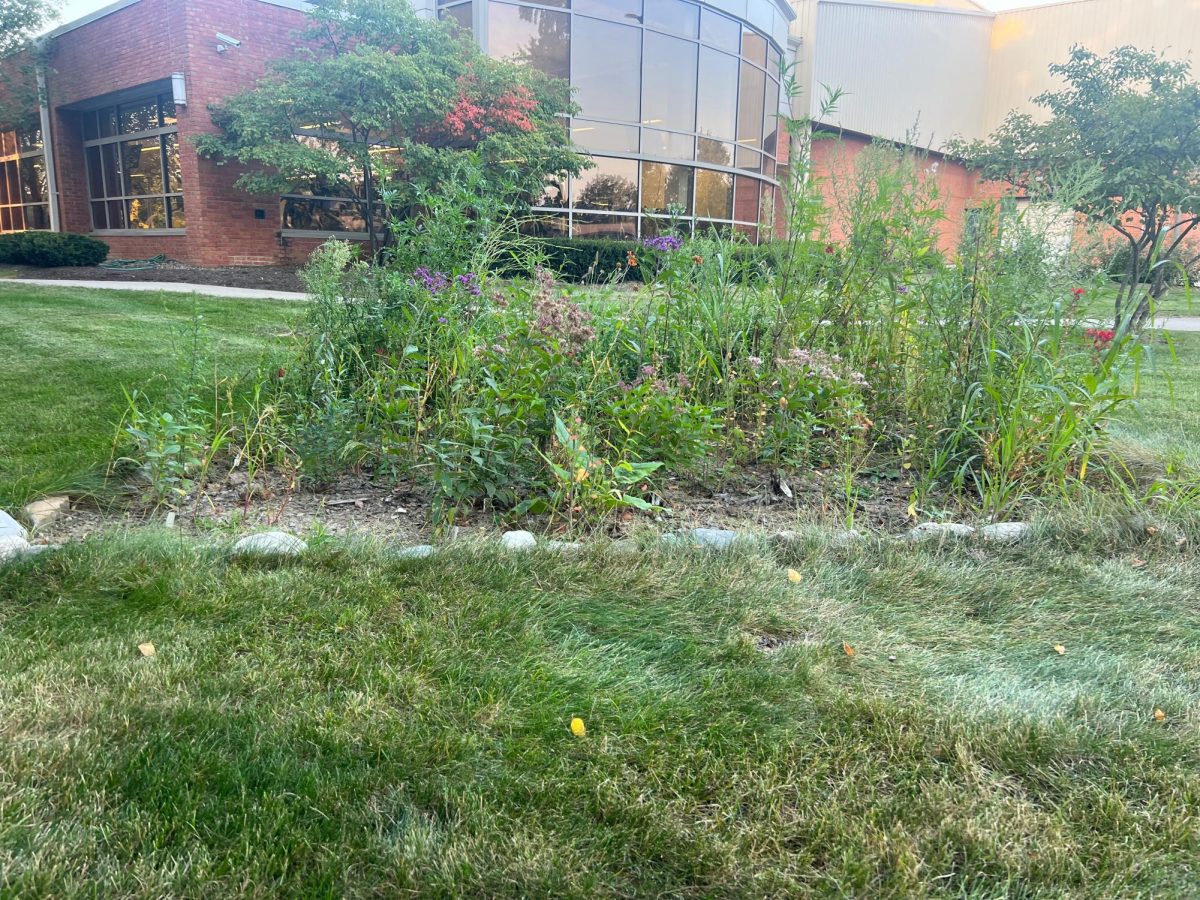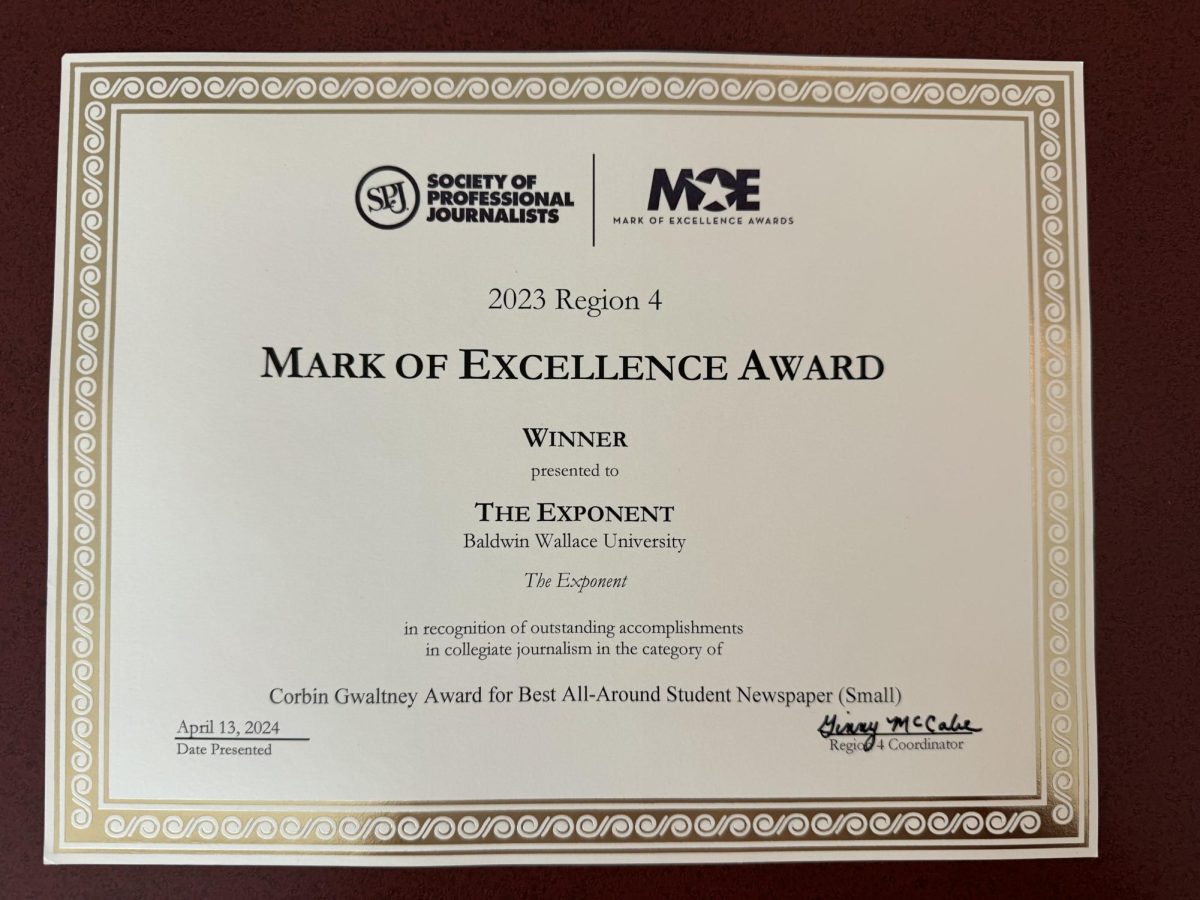Former University President Dies
The Rev. Mark H. Collier, a Methodist minister who served as Baldwin Wallace University’s seventh president, died surrounded by family on Feb. 8.
Collier was appointed as president in 1999, when the university was known as Baldwin-Wallace College. By then, he had already served the BW community for 25 years, having been appointed college chaplain and assistant professor of religion in 1974. He later became vice president of academic affairs before his promotion to president, a role in which he served until his retirement in 2006.
In an email to staff obtained by The Exponent, current president Bob Helmer highlighted Collier’s warmth and caring personality.
“Mark touched the lives of faculty, staff and students alike,” Helmer said.
According to an issue of BW’s yearbook released during his tenure as president, Collier often stated he could not successfully lead BW without the support of its student body. He was known to frequently engage with students in conversation.
“[Collier] was a mentor and friend to me and generations of BW students,” BW trustee Ryan Cross told BW’s website in their announcement Collier’s passing. “Mark devoted himself to BW.”
Under Collier’s oversight as president, BW underwent major renovations to its buildings including the recreation center and several residence halls. During his tenure, BW also built Malicky Center, a $7 million project that combined two existing campus buildings into a 46,000 square learning space on North campus.
Collier was a graduate of DePauw University, Yale Divinity School, and Kent State University, where he earned a doctorate degree in higher education. Before joining the BW faculty, he was the pastor at North Olmstead United Methodist Church.
Collier served on the board of several charitable organizations in the Greater Cleveland area. After retiring from BW, the university established the Enduring Questions lecture series in his honor, which BW’s website states was designed to “challenge all of us to contemplate who we are and how we relate to others and to the environment in which we live.”
The Exponent is looking for financial contributions to support our staff and our newsroom in producing high-quality, well-reported and accurate journalism. Thank you for taking the time to consider supporting our student journalists.
